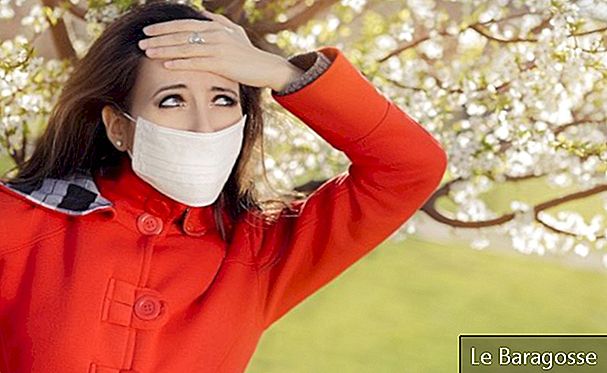A light cold, ready front is enough: your nose begins to run, your eyes begin to itch, and you sneeze desperately for hours.
Or, your suffering happens when you unknowingly choose a long-sleeved blouse.
Worse yet, you start sneezing when someone else picks a garment that was in the closet a few weeks ago!
These are just some of the situations that can trigger a rhinitis crisis, an allergic reaction that attacks Brazilians more than 2 million times a year.
The suffering caused by symptoms is already well known to people with rhinitis, but we have good news: is there a vaccine for rhinitis? and it really works.
Read also: 5 ways to unclog the nose
It's from Brazil!

Since the mid-1980s, otorhinolaryngologist Edmir Américo Lourenço, from the Jundiaí School of Medicine, in São Paulo, has been researching the development of rhinitis vaccines produced by himself.
According to a study published by the International Archives of Otorhinolaryngology, Lourenço began testing vaccines in patients with allergic rhinitis in 2005. A decade later, 79% of survey participants reported that symptoms simply disappeared.
The study was conducted on 281 patients aged 3 to 69 years, all with allergic rhinitis and some with associated asthma. The first stage of the research was to perform a skin sensitivity test on the volunteers to verify if they were allergic to mites, fungi, animal hair, feathers and pollen.
Based on the results, Lourenço developed a vaccine for each patient in a technique called immunotherapy? which had been on scientists' radar since at least 1835, but now comes with a new guise.
Did volunteers receive more than 30 vaccines over 14 months, accompanied by small amounts of allergens? which increased over time.
Read also: Dry air calls for extra health care
The result was that soon after the first vaccinations, patients no longer felt their nose become stuffy.
Who is immunotherapy indicated for?

Vaccine results are usually better in patients who produce antibodies called Immunoglobulin E, known as IgE. Although this is a very common symptom of rhinitis, not all patients have it.
In addition, vaccines work best for patients who are allergic to few substances, especially if they are mites. That is: only a good allergist doctor can tell if the vaccine is right for you.
Where can I get this treatment?

In some public hospitals, it is possible to receive free treatment through the Unified Health System (SUS). However, there are really few sites offering immunotherapy, so patients find greater availability in private clinics.
The problem is that the price of immunotherapy is not affordable, being between 6 thousand and 12 thousand reais per year in these places? and treatment can be up to five years, although the average duration is 14 months.
Read also: Protect your child from winter diseases
Remember that immunotherapy does not promote total cure of rhinitis. Nevertheless, is it able to keep the patient free of seizures for several years after treatment, unlike regular medications? if you stop taking them, the seizures come back.
If you have goose bumps just think of needles, good news: Scientists are researching a sublingual version of the treatment, which should be available soon.
Until then, the tip is to keep the house free of dust, avoid contact with allergy-causing agents, and wash the nose with saline.
Africa vaccinations get new funding (April 2024)
- Prevention and Treatment
- 1,230
















